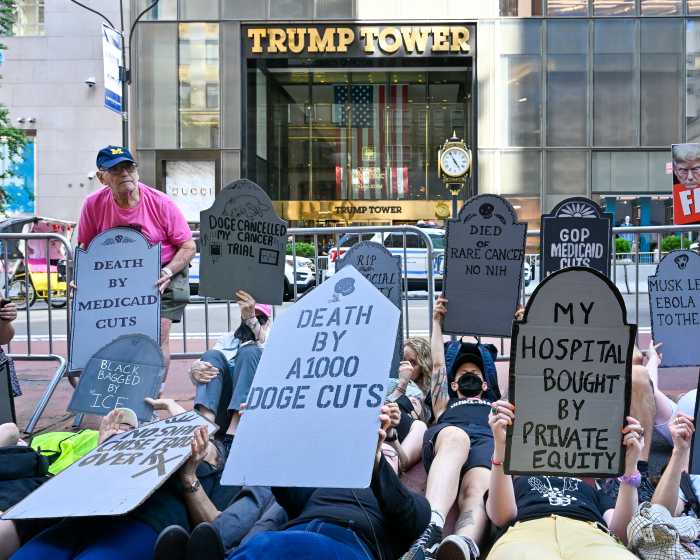On Sept. 11, 2001 the world changed.
The next year, a joint congressional investigation was formed to determine potential intelligence failures.
The “28 pages,” part of the longer “Joint Inquiry into Intelligence Community Activities before and after the Terrorist Attacks of September 11, 2001,” were classified, reportedly leading many to speculate about what they contained.
In the end, the “28 pages” contained seemingly tenuous ties between the 9/11 hijackers (15 out of 19 of which were Saudi Arabian citizens) and members of the Saudi government, according to The Washington Post.
Why were they declassified?
The documents were first classified at the FBI’s request, according to the Atlantic. And for years to follow, victim’s families and some in Congress fought to have these pages declassified, according to the Atlantic.
But speculation that the U.S. government was trying to cover up the links to the Saudis fueled a mythic quality.
In 2003, the then-Saudi foreign minister encouraged President George W. Bush to declassify the documents, promising it would clear the kingdom’s name and allow it to defend itself, according to CNN.
But on July 15, the Obama administration finally unsealed the documents, ending more than a decade of speculation and rumors.
What did they actually contain?
“While in the United States, some of the September 11 hijackers were in contact with, and received support or assistance from, individuals who may be connected to the Saudi Government,” the pages read.
But the document went on to temper that first, seemingly bold statement.
According to the Atlantic, “the pages allege that while some of the hijackers were in the U.S., they were in contact with, and at times received assistance from, people in the Saudi government, including two Saudi intelligence officers.” And at times, according to the article, members of the Saudi royal family and embassy staff provided “large sums of money, fake passports, and information to people assisting the hijackers.”
But the document takes a step back, cautioning that the intelligence doesn’t definitely conclude a connection between the terrorist attack and the Saudis.
“On the one hand, it is possible that these kinds of connections could suggest … ‘incontrovertible evidence that there is support for these terrorists within the Saudi Government,’” according to the pages. “On the other hand, it is also possible that further investigation of these allegations could reveal legitimate, and innocent, explanations for these associations.”
While there isn’t anything “conclusive,” the document does appear to be “an honest reading of the information they had,” said Columbia University professor Robert Jervis, who specializes in national security policy and intelligence. He added, “They’re almost field notes on things that the FBI and others involved couldn’t clear up.”
“And that’s admirable,” Jervis said. “On the other hand, it’s frustrating.”
Ultimately, Jervis said that the papers weren’t the “smoking gun” many had speculated they were.
“You tend to expect more definitive judgments than you often get,” he said. “From reading the pages, I think [intelligence agents] were frustrated they didn’t get the cooperation they were looking for from the Saudis.”
So what does it mean?
The same day the pages were released, the Office of the Director of National Intelligence released a statement that the pages had been withheld in the past because they contained “still-sensitive national security and law enforcement information.” But the office added that now, “the Executive Branch determined that the harm to national security by releasing portions of … the report at this time is outweighed by the public interest in additional transparency concerning the Committees’ findings.”
The documents are also interesting to the family members of 9/11 victims who are trying to sue the Saudi government, alleging that it supported al-Qaida, hoping it will boost their case, according to ABC News.
“The fact that they couldn’t reach a definitive judgment might lead both legislators and judges to say ‘OK, lets potentially put it in front of a jury,’” Jervis said. “There’s smoke. But the question is, is there fire?”
In early September, Congress passed legislation that would allow the families of victims of the Sept. 11 attacks to sue Saudi Arabia’s government for damages, despite the White House’s threat to veto the measure.
Obama had 10 days to veto the “Justice Against Sponsors of Terrorism Act,” known as JASTA, and did so on Sept. 23. He had argued that the legislation could expose U.S. companies, troops and officials to lawsuits, and alienate important allies at a time of global unrest.
The veto prompted Congress to attempt to overturn his decision with a rare veto override, the first of his presidency.
On Wednesday, the U.S. Senate overwhelmingly voted to reject Obama’s veto, 97-1. Democratic Minority Leader Harry Reid was the lone “no” vote.
Democratic Senator Tim Kaine, Hillary Clinton’s vice presidential running mate, and Sen. Bernie Sanders did not vote.
The measure next goes to the House of Representatives, which was due to vote later on Wednesday. If two-thirds of House members also support JASTA, it would be the first veto override of Obama’s eight-year presidency.
The Saudi government, which strongly denies responsibility, had lobbied against the bill.
– With Reuters



































